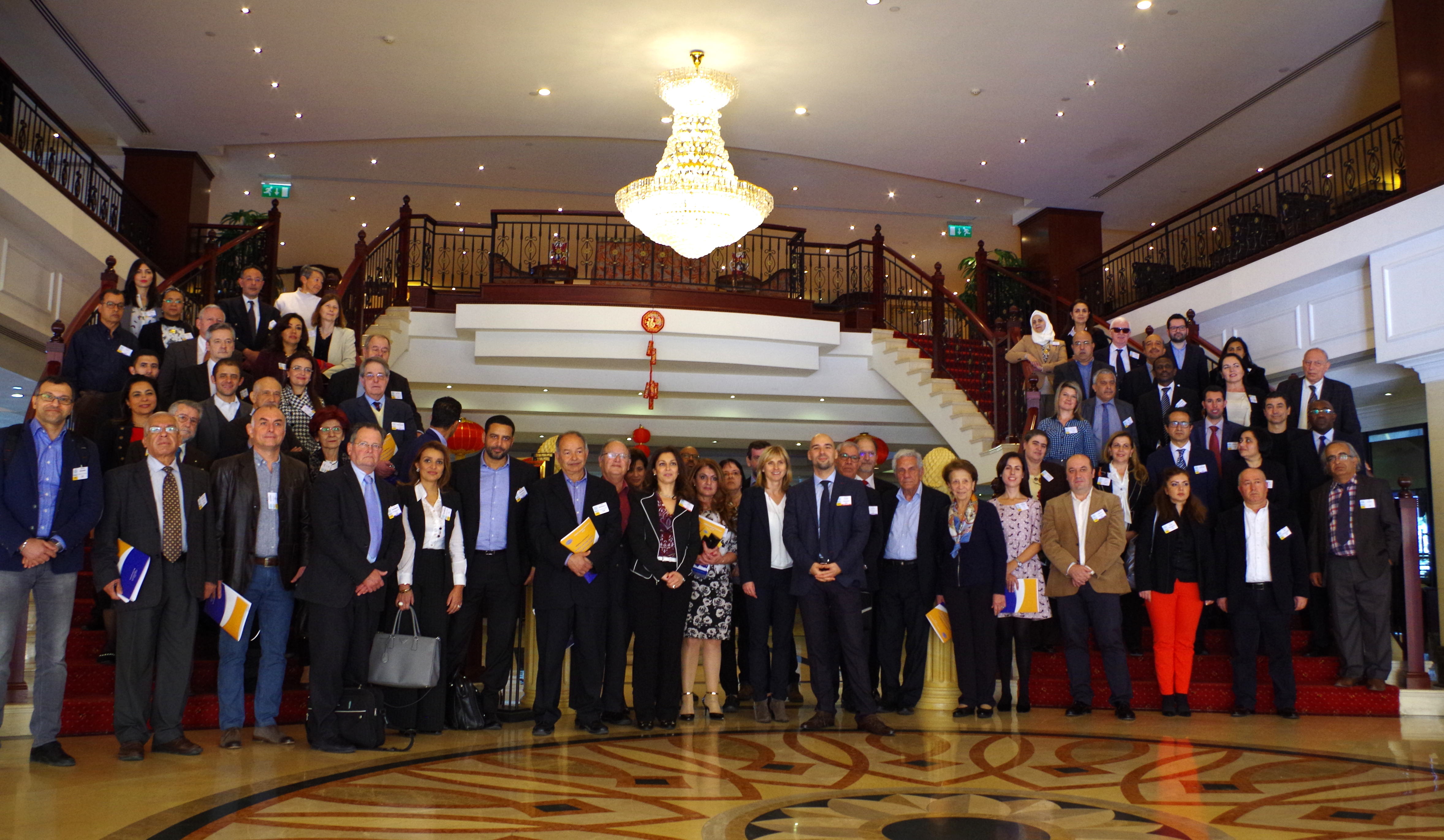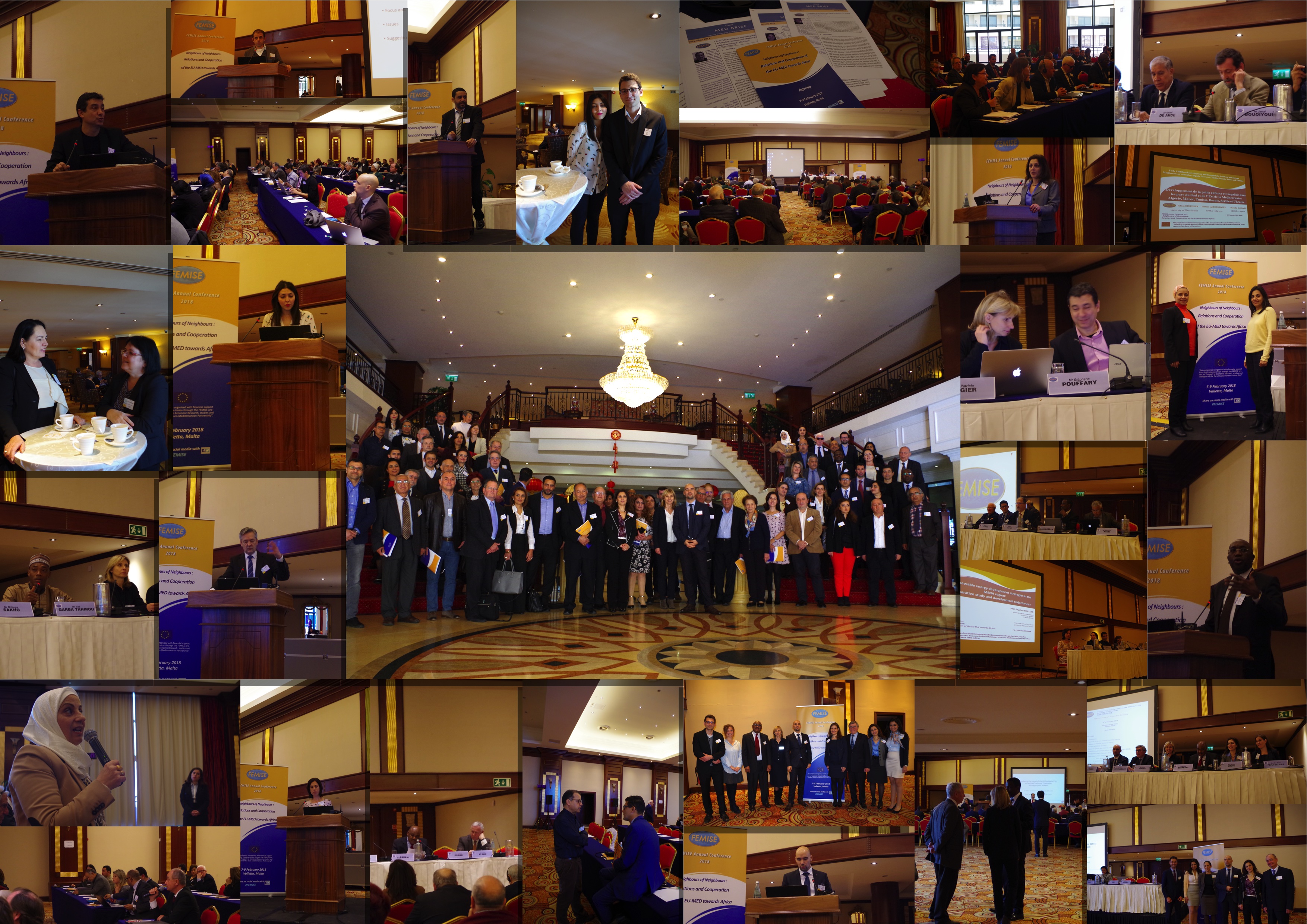Theme : Neighbours of Neighbours : Relations and Cooperation of the EU-MED towards Africa
Place : Valletta, Malta
Date : On 18 april 2018

FEMISE 2018 annual conference on: « Neighbours of Neighbours : Relations and Cooperation of the EU-MED towards Africa »
Extensive collaboration between the Euro-Med region and sub-Saharan Africa is made necessary by the common economic, demographic, migratory and climate challenges. Such collaboration could be of great benefit to all stakeholders. This is the point of view defended by the experts of the FEMISE network who met in Malta on 7-8 and 9 February 2018 at the networks’ Annual Conference.
The recommendations of the conference to determine the priorities and the necessary measures towards a EuroMed-Sub-Saharan Africa cooperation are as follows:
- Investing in youth must be a priority for Africa and the European Union. The demographic dynamics of the African continent and its young population (60% of Africans are under 25) are putting increasing pressure on the education system. Education remains a shield against forced marriages and a defence tool against unemployment and poverty.
- Cooperation opportunities with Africa must be seized to create infrastructures, to improve the resilience of these countries in the face of climate and other challenges, and to strengthen the principles of good governance protecting civil society.
- Integration must be complemented by increased competitiveness, FDI attraction, stronger growth, and wider markets leading to economies of scale. Attracting FDI is a priority, but there is a need to focus on sectors that will help the countries develop.
- Europe must become aware of the importance of industrialization and human development in Africa. The solutions currently proposed by the EU, whether stemming from the security and migration policy, or from trade policy (by asking sub-Saharan countries to reduce their tariff protection vis-à-vis European products), are far from being up to the standards. In general, the priorities of some (development in the South) and of others (migration in the North) should be treated with a more global vision, taking into account the complexity of situations and interaction processes (industrialization-jobs). -Security-migration, etc.).
- The industrialization of the African continent could go faster if it could rely on a more integrated zone to create regional value chains and facilitate their insertion at the world level, especially in value chains run by EU firms. In this area, Europe can help countries in a variety of ways: market knowledge, standards acquisition, technology transfer, human capital formation, investment support, infrastructure and logistics improvements, and so on.
- It is urgent to have a much more active and proactive policy towards the private sector: We must putfirms at the center of concerns, all over the African continent, allow the voice of entrepreneurs to be more audible, listen to their needs, change their image and give young people the envy to undertake entrepreneurial efforts. Facilitating, by all means, intra-regional trade is a way to achieve this. Open innovation must foster the meeting of ideas of African startups and Euro-Mediterranean funding.
- Further cooperation with civil society and local authorities should be encouraged to increase national coherence and respond to the needs and providing a role and a meaning to national and local actions. A facilitation dialogue has to be built to propose solutions for the actors to revise their ambitions upward: territorialize the commitments of states to allow local governments and cities to seize these issues and competences currently dependent on states. This must be done in a multi-actor and multi-competence approach to enable a global transition of society.
- Economic development throughout the African continent must not be at the expense of the environment and quality of life: It is important to restore protected areas affected by urbanization, to implement measures to combat deforestation, protect coastal areas and ensure access to drinking water for households and to meet the needs of the agricultural sector.
For a detailed account of the presentations and discussions, please click here.
“Video Briefs” with some of the speakers are also available below.



